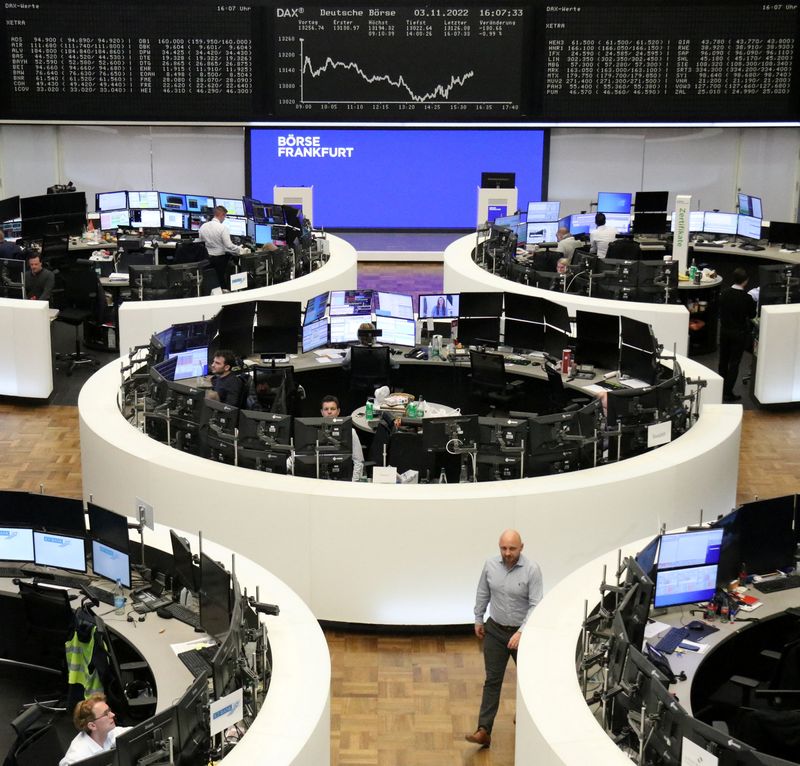By Shreyashi Sanyal
(Reuters) -European shares rose on Friday as China-sensitive luxury stocks and miners jumped on hopes that the world's second-largest economy will ease COVID-19 curbs. The STOXX 600 rose 1.1% by 0932 GMT. The European basic resources index surged 4.6% to a seven-week high and was set for its biggest weekly gain in more than three months. European markets are now on course to rise for a third straight week, with positive momentum set in the previous month by largely better-than-expected earnings reports spilling over into November. Recent unsubstantiated social media posts stating China may relax its COVID rules in March have lifted investor optimism as both the sectors have major exposure to the country. A jump in copper prices also boosted miners. [MET/L] "The zero-tolerance policy that China has pursued to date has certainly been a drag on growth, not just in China but elsewhere too ... but if China is now changing strategy then that is a positive development," said Stuart Cole, chief macro economist at Equiti Capital in London.
Luxury giants including LVMH, Kering (EPA:PRTP), Pernod Ricard (EPA:PERP) and Hermes International (OTC:HESAF) climbed between 2.5% and 3.5%. A report said Kering was in advanced discussions to buy fashion brand Tom Ford.

Among other stocks, manufacturer Andritz surged 9.2% to the top of the STOXX 600, as its quarterly sales and profit rose significantly. Societe Generale (OTC:SCGLY) jumped 5.9% after posting a higher-than-expected net income, while shares in Monte dei Paschi di Siena plunged 18.4% after the bank completed a 2.5-billion-euro ($2.4 billion) capital raise. The STOXX 600 bounced off one-week lows triggered by hawkish commentary from the U.S. Federal Reserve and the Bank of England, ahead of data which will likely show the smallest U.S. job additions in nearly two years in October, with a small increase in unemployment rate.Data so far indicates that the euro zone is heading towards a winter recession, with the European Central Bank (ECB) showing no signs of tempering its aggressive policy tightening cycle in its fight against record high inflation.
Euro zone business activity contracted last month at the fastest pace since late 2020 as high inflation and fears of an intensifying energy crisis hit demand, according to a survey.